Climate Conditions
Climate Conditions
- Temperature: July is one of the warmest months in Erzurum. Daytime temperatures typically range between 20°C to 30°C (68°F to 86°F). However, evenings can be cooler, dropping to around 10°C to 15°C (50°F to 59°F).
- Humidity: The humidity levels in Erzurum during July are generally low, providing a comfortable and dry climate. This makes it an ideal time for outdoor activities and exploration.
- Sunshine: Expect plenty of sunshine in July, with long days and clear skies. Erzurum enjoys around 11 to 13 hours of daylight, perfect for sightseeing and enjoying the natural beauty of the region.
- Precipitation: July is one of the driest months in Erzurum. Rainfall is infrequent, but occasional short showers can occur. On average, the city receives about 20 to 30 mm (0.8 to 1.2 inches) of rain during this month.
What to Pack
- Clothing: Light, breathable clothing is recommended for daytime activities. However, bring a jacket or sweater for cooler evenings.
- Footwear: Comfortable walking shoes are a must, especially if you plan on exploring Erzurum’s historic sites and natural trails.
- Accessories: Sunglasses, hats, and sunscreen are essential to protect yourself from the strong sun. Don’t forget a water bottle to stay hydrated.
Activities in July
- Sightseeing: Enjoy the city’s rich historical sites, including the Erzurum Castle, Çifte Minareli Medrese, and the Yakutiye Medrese.
- Outdoor Adventures: Take advantage of the pleasant weather to explore the Palandöken Mountains, ideal for hiking and nature walks.
- Cultural Experiences: Participate in local festivals and events that showcase Erzurum’s vibrant culture and traditions.
Erzurum in July offers a delightful blend of warm days, cool nights, and a dry, comfortable climate. Whether you’re interested in history, nature, or simply enjoying the scenic views, Erzurum is a fantastic destination to explore during the summer months.
Currency
When traveling to Turkey, it’s important to familiarize yourself with the local currency to ensure smooth financial transactions during your stay.
Turkish Lira (TRY)
- Currency Code: TRY
- Symbol: ₺
- Subdivision: 1 lira is divided into 100 kuruş.
Banknotes and Coins
- Banknotes: Turkish Lira banknotes come in the following denominations: 5, 10, 20, 50, 100, and 200 lira.
- Coins: Coins are available in 1, 5, 10, 25, 50 kuruş and 1 lira.
Currency Exchange
- Airports and Hotels: You can exchange foreign currency at major airports and hotels. However, exchange rates may not be as favorable as those at banks or currency exchange offices.
- Banks and Exchange Offices: Banks and dedicated currency exchange offices (known as “Döviz Bürosu”) offer competitive exchange rates. These can be found in major cities and tourist areas.
- ATMs: ATMs are widely available throughout Turkey. Many ATMs accept international credit and debit cards, allowing you to withdraw Turkish Lira directly. Be aware of potential fees charged by your home bank and the ATM provider.
Payment Methods
- Credit and Debit Cards: Credit and debit cards (Visa, MasterCard, and sometimes American Express) are widely accepted in hotels, restaurants, and larger shops. Smaller establishments and markets may prefer cash.
- Cash: It’s advisable to carry some cash, especially in rural areas or for small purchases.
Tips for Travelers
- Check Exchange Rates: Before exchanging money, check the current exchange rate to ensure you are getting a fair deal.
- Notify Your Bank: Inform your bank of your travel plans to avoid any issues with using your cards abroad.
- Carry Small Denominations: Having small denominations of cash can be useful for tips, taxis, and small purchases.
- Avoid Black Market Exchange: Always use official and reputable exchange services to avoid scams and counterfeit currency.
By understanding the currency and payment methods in Turkey, you can enjoy a hassle-free financial experience during your travels.
Health Regulations
When traveling to Türkiye, it is important to be aware of the health regulations to ensure a safe and enjoyable visit. Below is a comprehensive guide to the key health regulations and recommendations for travelers:
Vaccinations
- Routine Vaccinations: Ensure that you are up to date with routine vaccinations such as measles, mumps, rubella (MMR), diphtheria-tetanus-pertussis, varicella (chickenpox), polio, and your yearly flu shot.
- Recommended Vaccinations: Hepatitis A, Hepatitis B, and Typhoid are recommended for most travelers, especially if you plan to visit rural areas or consume street food.
Entry Requirements
- Health Declaration: Some travelers may be required to fill out a health declaration form upon arrival.
Health Insurance
- Travel Insurance: It is advisable to have travel health insurance that covers medical expenses and emergency evacuation.
- European Health Insurance Card (EHIC): If you are from a European country that participates in the EHIC scheme, your card may provide some health coverage, but it is still recommended to have additional travel insurance.
Medical Facilities
- Hospitals and Clinics: Türkiye has a wide network of public and private hospitals and clinics, particularly in major cities. Private hospitals generally offer higher standards of care and shorter waiting times.
- Pharmacies: Pharmacies are widely available and well-stocked. Pharmacists can provide advice and over-the-counter medications.
Food and Water Safety
- Tap Water: It is advisable to drink bottled or filtered water, as tap water may not be safe for consumption in all areas.
- Food Safety: Stick to well-cooked foods and be cautious with street food. Wash fruits and vegetables thoroughly or peel them before eating.
Travel Health Tips
- Sun Protection: Use sunscreen, wear a hat, and stay hydrated to protect yourself from the strong sun, especially during the summer months.
- Emergency Numbers: In case of an emergency, dial 112 for ambulance services.
By staying informed about the health regulations in Türkiye, you can ensure a safe and healthy travel experience. Always check the latest information from official health and travel authorities before your trip.

